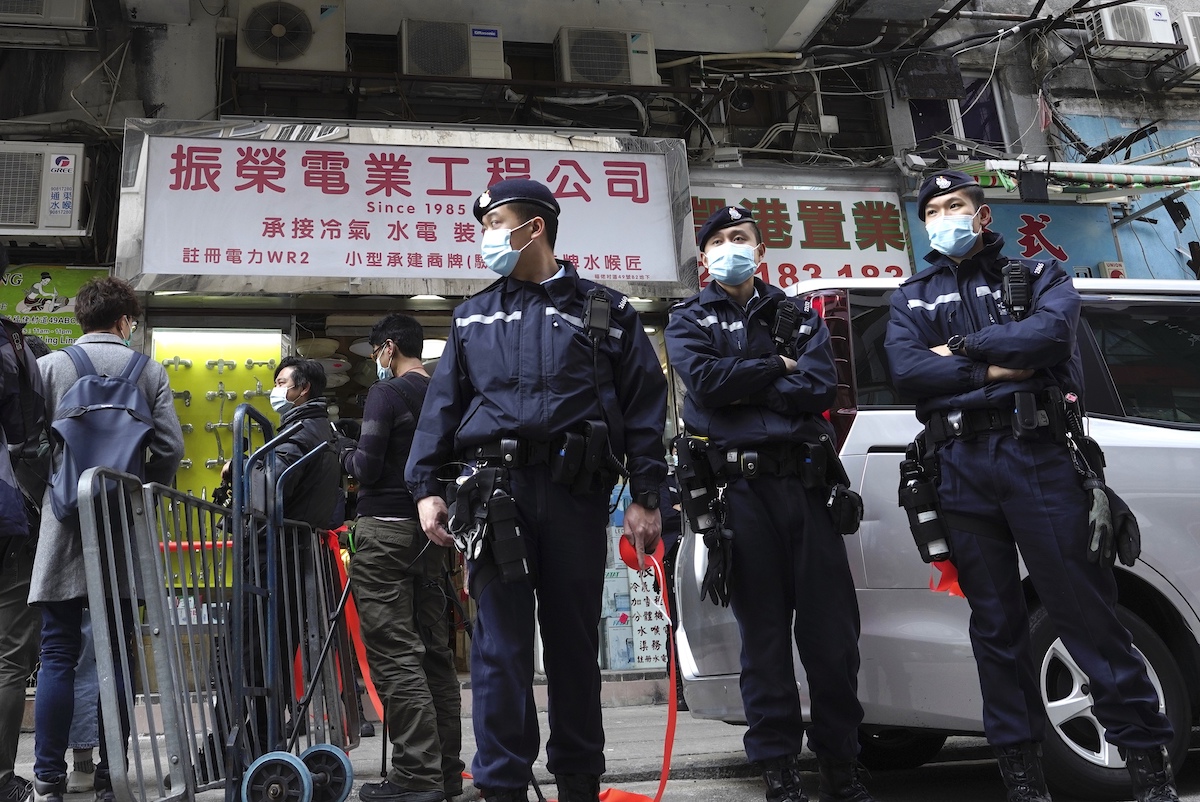Hong Kong police arrested more than 50 opposition lawmakers in a raid on Jan. 6, according to NPR.
The move was “by far the largest such action under [the national security law],” according to AP News, and although only three remain detained, those released through bail could still be convicted.
“They haven’t made any charges against us yet,” said Lam Cheuk-ting, former pro-democracy lawmaker and one of the 50 detained. “But I’m quite sure that they will charge some of us sooner or later, whether they have sufficient evidence or not.”
Hong Kong Secretary for Security John Lee deemed the arrests “necessary,” according to Hong Kong Free Press.
“The operation today targets the active elements who are suspected of… overthrowing or interfering, serious[ly] destroying the Hong Kong government’s legal execution of duties,” Lee said in Hong Kong’s legislature.
One of two sources speaking anonymously told Reuters the arrests were only a part of China’s efforts of preventing a repetition of its big public revolts, such as the series of protests in 2019 and the Tiananmen Square protests in 1989.
International authorities have condemned the mass arrests in a joint statement by the United States, Australia, Canada and the United Kingdom.
“It is clear that the National Security Law is being used to eliminate dissent and opposing political views,” the statement read.
“We call on the Hong Kong and Chinese central authorities to respect the legally guaranteed rights and freedoms of the people of Hong Kong without fear of arrest and detention.”
The national security law passed on June 30, 2020 sparked a series of arrests during unlawful street protests. It then progressed to authorities arresting those under suspicion of secession through social media.
Similar arrests continued over the following months, notably on September 6, the day of Hong Kong’s legislative elections, where nearly 300 were detained according to The Guardian.
Other prominent pro-democracy figures such as Jimmy Lai and Joshua Wong were also arrested on August 10 and December 2 of 2020, respectively.
According to Al Jazeera, an activist group announced the arrival of five Hong Kong protesters allegedly seeking asylum to the U.S. on January 16, 2021.
“The activists, all under the age of 30, took part in the ongoing pro-democracy protests in Hong Kong, faced protest-related arrests and charges, and fled the city by boat last July,” said Samuel Chu, founder of the Hong Kong Democracy Council, a Washington-based advocacy group.
Additionally, several politicians have either been expelled by the government or stepped down from their roles in protest of the law.
Humans rights groups have reiterated that the national security law has broad powers continually used against the government’s critics.
“Hong Kong authorities’ claims that discussing candidates and advocating for government action is somehow subversive is ludicrous,” said Maya Wang, senior China researcher for Human Rights Watch Asia division.
“People have a legitimate right to take part in public affairs,” said Yamini Mishra, Asia-Pacific Regional Director for Amnesty International. “Political opposition should not be silenced just because the authorities don’t like it.”
